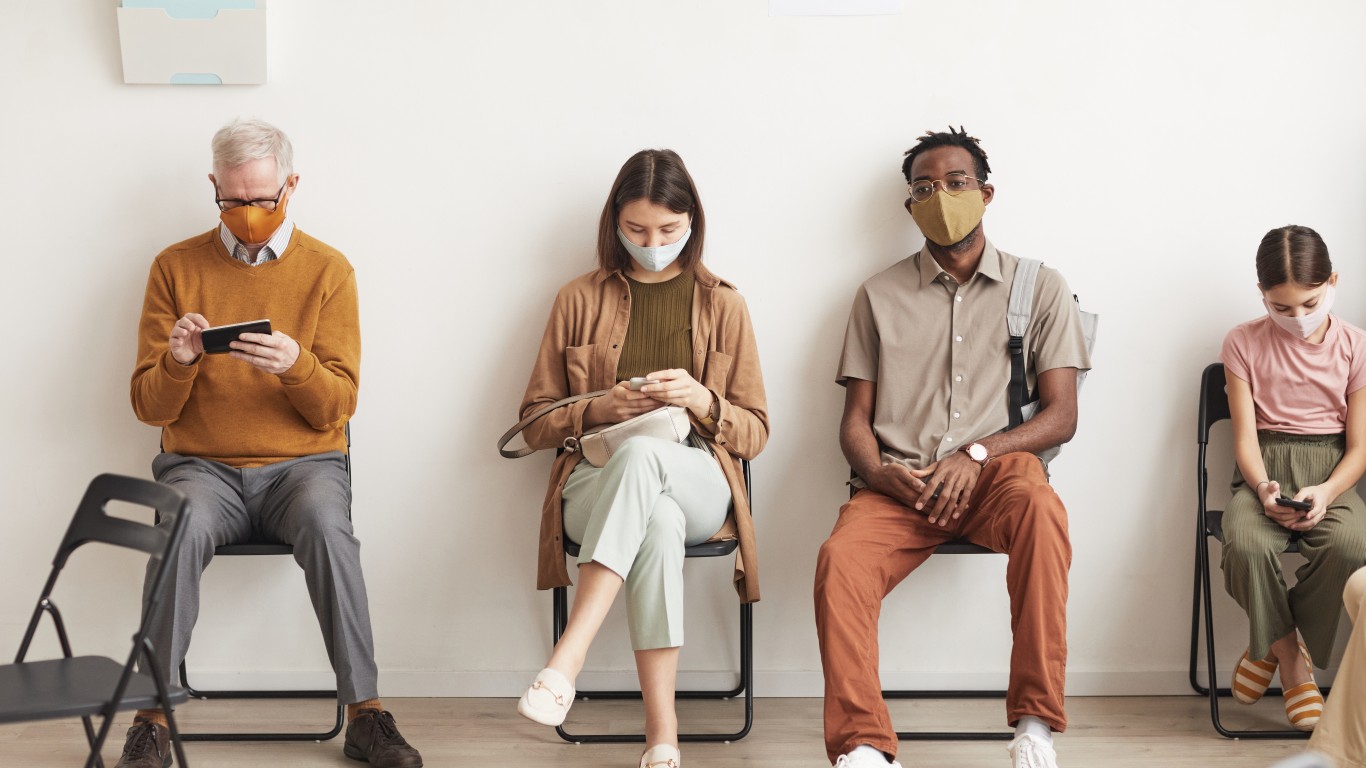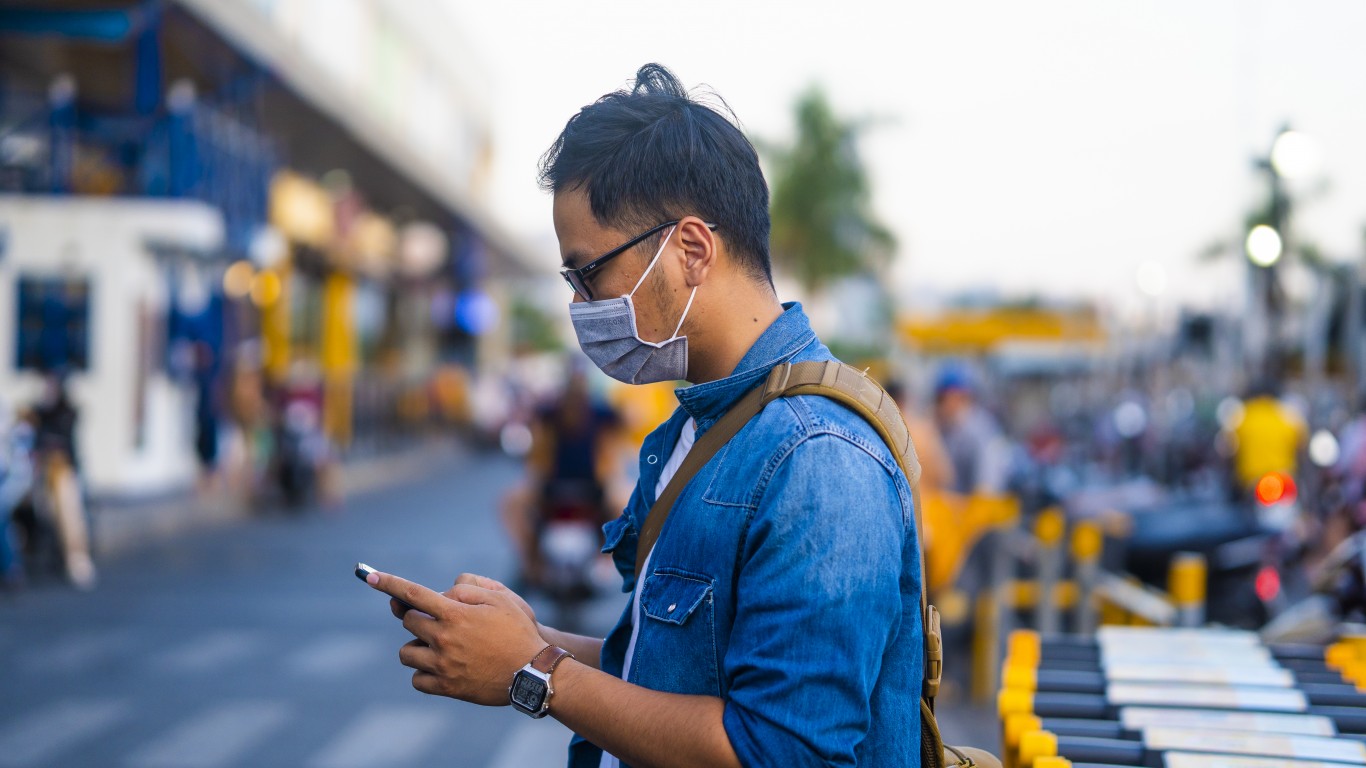
Bold headlines — political and otherwise — kept the spotlight on health care and wellness throughout 2019. As the year winds down, it’s time to look to what might be happening in the field in 2020.
24/7 Tempo reviewed some of the biggest and most recent health news stories to identify the top trends in wellness and health. We used editorial discretion to choose the 18 of the most talked about topics that are likely to continue to make headlines in the upcoming year.
The year ahead will most likely be dominated by the presidential election. According to a recent poll by political news and polling data aggregator RealClear Opinion Research, health care is the top issue facing America today. Candidates will likely raise awareness of several important health topics – especially health care, health insurance, and climate change — as they explain their plans to tackle each issue.
In addition to these likely debate topics, we can expect several other stories to be in focus in 2020. Some of the top stories may not be positive. Antibiotic resistance is a growing peril, and scientists will probably continue to warn against overuse of antibiotics in people, animals, and plants. The opioid epidemic still rages on, but some of the pharmaceutical companies that have been fueling it are now in the spotlight.
There will likely also be many positive health developments in 2020. Some we cannot predict and will be a pleasant surprise, while other already made headlines in 2019 and will hopefully only progress further in 2020. These include promising discoveries in medicine, life-saving drugs in development, and great strides taken addressing chronic health problems – these are the best health news over the last decade.
Click here to see the top health stories to watch for in 2020.
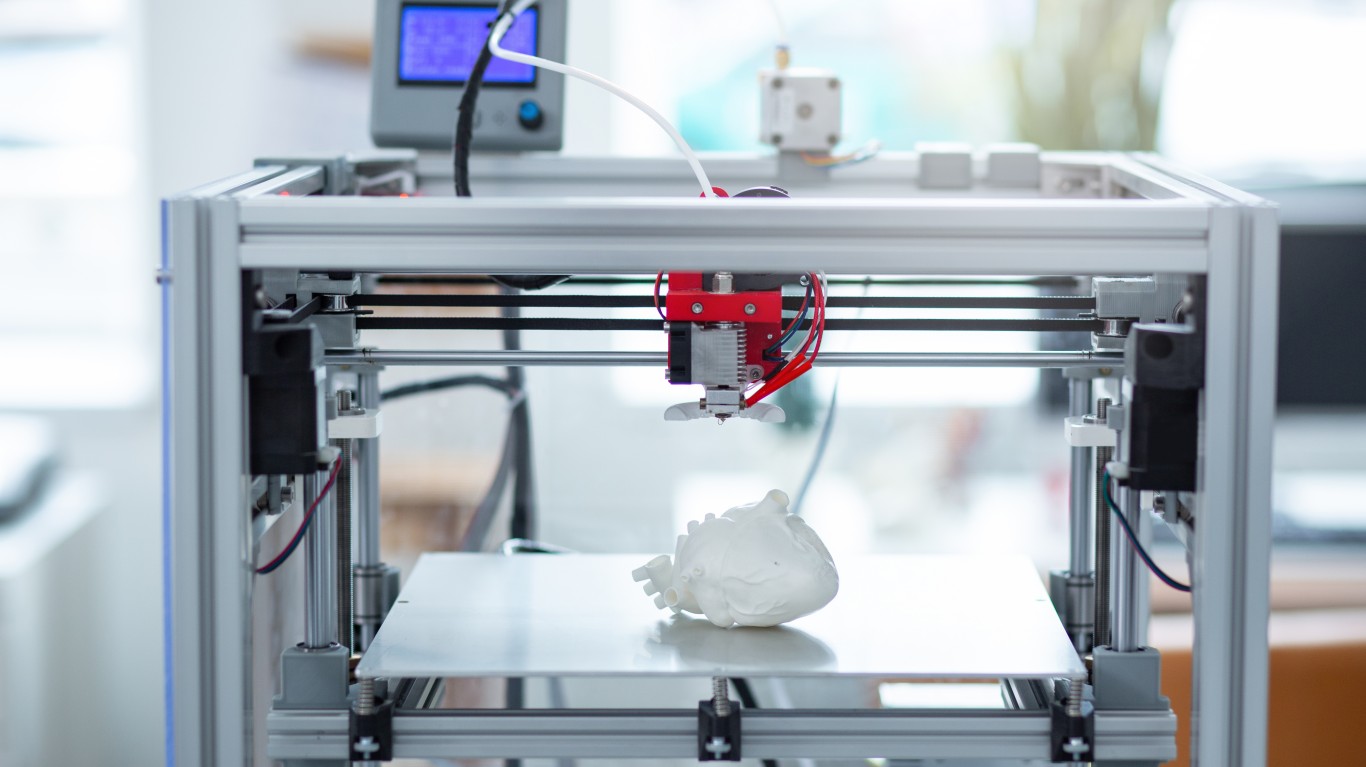
3D organ printing
While commercialization is still years away, 2019 saw successes in printing vascular tissue from living cells. Producing fully functional replacement organs from a person’s own cells seems like a not-so-distant possibility. Scientists at Harvard ‘s Wyss Institute have grown a heart tissue that beats just like a normal human heart. There are companies working on printing skin grafts, insulin-producing cells, and vascular shunts made from the tissue of the patients who need dialysis.
[in-text-ad]

Affordable Care Act
2020 is an election year, and every candidate will be proposing ways of changing or building upon the Affordable Care Act — commonly known as Obamacare. To date, 36 states and D.C. have adopted the Medicaid expansion, a provision of the ACA providing additional federal funding to state health care systems. While the percentage of people without health insurance decreased after the major coverage expansion in the ACA, more than 10% of the non-elderly population is still uninsured.
The Centers for Medicare & Medicaid Services (CMS) recently announced new guidelines that will make it easier for states to use the ACA’s waiver program, which lets states establish their own health care programs, abandoning some provisions of Obamacare. Under the new guidelines, states in 2020 may use federal funding as subsidies to people who are buying short-term health insurance policies.

AI in health care
The rise of data use in health care means increased use of artificial intelligence, which is often the only way to process such large quantities of information, is all but inevitable. And AI continues to become more sophisticated.
In 2018, the Food and Drug Administration approved the first medical device that uses AI to detect diabetic retinopathy, an eye disease, in adults who have diabetes. The FDA has approved several uses of AI to detect and diagnose anything from cancer and bleeding in the brain to irregular heart rhythm. The National Institutes of Health described machine learning as the “primary capability behind the development of precision medicine, widely agreed to be a sorely needed advance in care.”

Air quality getting worse
After improving for several years, air quality in the United States has been getting worse. Researchers from the University of Chicago call air pollution the “world’s top killer” because it cuts global life expectancy by an average of 1.8 years per person, according to the university’s Quality Life Index. In the United States alone, nearly 10,000 premature deaths since 2016 have been attributed to an increase in air pollution since 2016, according to the National Bureau of Economic Research. More than 141 million Americans live in places with unhealthy levels of air pollution, according to the American Lung Association’s 2019 State of the Air report.
[in-text-ad-2]

The threat of antibiotic resistance
Antibiotic resistance occurs when drugs can no longer kill certain bacteria. It usually happens as a result of changes in the bacteria due to overuse of antibiotics. For example, researchers warn that the commonly used antibiotics penicillin, which has been key in the decline of infections since it was discovered in 1928, is becoming obsolete.
In April 2019, the United Nations issued an urgent warning on the overuse of antibiotics and antimicrobial drugs in people, animals, and plants. According to the U.N., a growing number of infections are becoming drug resistant and without action could result in as many as 10 million deaths a year by 2050.

Ethics of gene editing
Gene editing, the process of changing an organism’s DNA, or what some people call “gene hacking,” is here. This type of genetic engineering is being explored in many fields — from growing crops to treating cancer and genetic disorders. As the gene editing technology advances and makes headlines for bringing revolutionary changes to health fields, ethical concerns about its use will likely continue to grow. Unethical uses of gene editing could be creating designer babies, or there could be inadvertent harmful effects, such as causing environmental ripple effects by eliminating disease-spreading insects.
[in-text-ad]

Insurance companies mergers
The CVS-Aetna and Cigna-Express Scripts mergers may open the door for more massive health care deals, which may further consolidate the marketplace. If more insurers combine, the health insurance industry in the United States, already the most expensive one in the world, may be dominated by just a few giant conglomerates.

Job burnout
Burnout, first described in 1974 by psychologist Herbert Freudenberger, is the feeling of chronic work-related stress that has not been managed. It was officially classified as a medical diagnosis by the World Health Organization in May 2019, and it’s becoming a crisis, according to a Gallup report on its survey of about 7,500 full-time employees. Almost a quarter reported feeling burned out at work very often or always; 44% said they felt that way sometimes. Lack of sleep is just one common symptom of the many associated outcomes. Others include exhaustion, lack of motivation, forgetfulness, and pessimism.

Nap bars and pods
2020 may be the year of the power nap. Chronic sleep deprivation is a very common problem in modern work culture — one in three American adults don’t get enough sleep, which is at least seven hours a night, according to the CDC. The health risks lack of sleep can bring can lead to scores of health problems ranging from weight gain to depression. Nearly half of Americans say poor or insufficient sleep affects their daily activities, according to the National Sleep Foundation.
More people seem to be aware of the importance of sleep as nap bars are popping up in big cities across the country. Houston opened its first nap bar in March. They can also be found in New York City and D.C.
[in-text-ad-2]

Obesity projected to get worse
Though it seems as if there is a growing health craze that is encouraging Americans to eat healthier foods and lead healthier lifestyles, obesity rates across all age groups are increasing and will likely remain a major health concern across the country.
The obesity epidemic, as health experts have described it, is projected to only get worse in 2020. Youth obesity grew from 16.8% to 18.5%, and the adult obesity rate increased from 33.7% to 39.6% between 2008 and 2016, researchers from the CDC. Across all age groups in 2017, 65.4% of people were overweight or obese, according to an annual analysis of CDC data by the Kaiser Family Foundation.

Opioid litigation settlements
The decades-old and ongoing story of drug addiction in the United States may continue to evolve in 2020 to include the litigation of pharmaceutical makers. For the first time in history this year, these drug companies have started to be held accountable for their role in the opioid crisis.
Purdue Pharma, which makes OxyContin, an addictive opioid painkiller, agreed in April to pay Oklahoma state $270 million rather than face trial on charges of misleading marketing practices and misrepresentation regarding the drug. By August, the pharmaceutical company agreed to pay up to $12 billion to settle thousands of opioid addiction lawsuits brought against it by states, cities, and counties. In October, two Ohio counties settled with four drug companies — McKesson, Cardinal Health, AmerisourceBergen, and Teva — which agreed to pay a total of $260 million. Nationwide, there are still thousands of ongoing opioid addiction lawsuits.
[in-text-ad]

Plant-based meat alternatives
About a decade ago, two different California companies — Beyond Meat and Impossible Foods — developed plant-based meat substitute products whose flavor and texture closely approximated actual ground beef. Today, an ever-increasing number of restaurant chains and grocery stores have been adding products made by these companies and smaller competitors.
The Impossible Burger is now sold in more than 17,000 restaurants and appeared in supermarkets in September. Beyond Meat, meanwhile, claims to be in “over 58,000 grocery stores, restaurants, hotels, universities and beyond.” The global plant-based meat, valued at $10 billion in 2018, is expected to reach $31 billion by 2026, according to Reports and Data, a market intelligence and strategic consulting firm.
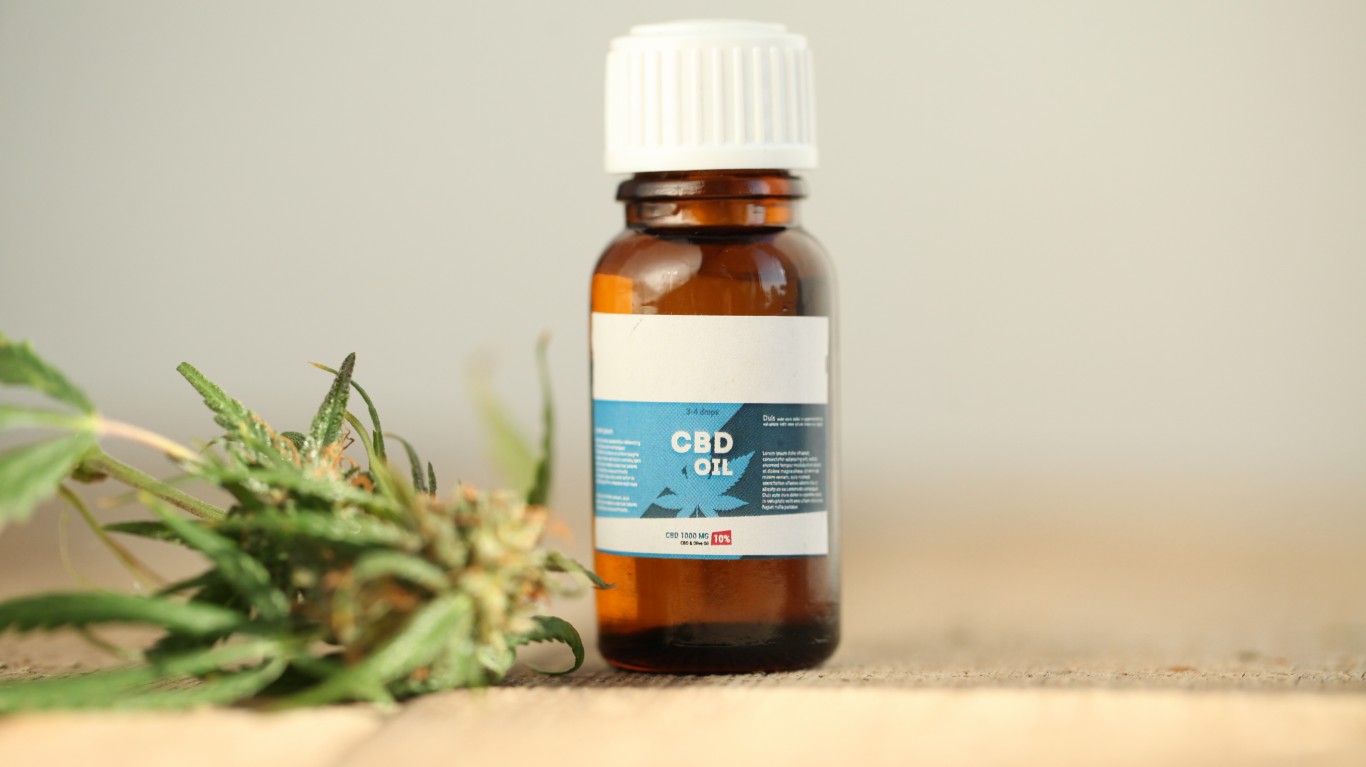
Products with CBD oil
America may be on the verge of going CBD-crazy. Cannabidiol, or CBD — an active but not psychoactive compound found in marijuana — has been credited with near-magical powers, including fighting everything from acne to depression to Parkinson’s disease. (CBD research is still in its infancy, so whether such products are effective is still unclear.)
According to a new Gallup Poll on CBD use, 14% of U.S. adults (about 1 in 7) use CBD products. Some 40% of those who use CBD products take them for pain of various kinds. The next most common uses are for anxiety (20%). CBD products with extremely low concentrations of the psychoactive compound THC have proliferated since the federal government, after approving the CBD-based seizure medication Epidiolex in 2019, removed CBD from its list of controlled substances. States now regulate CBD products, and most allow their sale. Idaho, Nebraska, and South Dakota still don’t.

Shortage of primary care physicians
The United States could be facing a severe shortage of doctors by the end of next decade â not enough people are becoming physicians. There could be a nationwide shortage of more than 122,000 medical professionals by 2030, according to research by the Association of American Medical Colleges. This is an increase of about 15% compared to previous projections about the lack of doctors in the near future. In 2017, the AAMC estimated a shortage of up to 105,000 physicians in 2030.
Already,13% of Americans live in counties where a single doctor must serve 2,000 or more residents, according to UnitedHealth Group, an insurance company.
[in-text-ad-2]

Vaping and lung injuries
2019 was marked by an outbreak of lung injury associated with the use of e-cigarette — and news about their use and risks are likely to make headlines again in 2020. The National Institutes of Health calls the rise in vaping among teens “alarming.” About 37% of 12th-graders reported vaping in 2018, compared with 28% in 2017.
Vaping of nicotine, flavored liquids, marijuana, and hash oil have all increased. At least 52 deaths and 2,409 lung injury cases have been confirmed by the CDC as a result of vaping as of Dec. 10, 2019. The agency has identified vitamin E acetate, an additive in some THC-containing e-cigarettes as the possible source of the injury. As much as 82% of the patients reported using THC products.
Robots’ use in health care
In 2010, remote-controlled robots performed the very first heart surgery. Over the years, robotic surgery, or robot-assisted surgery, has grown to be one of the hottest fields in health technology.
There isn’t firm evidence that robot surgery yields meaningfully better results, such as , such as in hernia repair operations. The hope however, is that robot use will allow doctors to be more precise and better see the area that is being operated on during certain procedures, and lower costs for patients.
[in-text-ad]
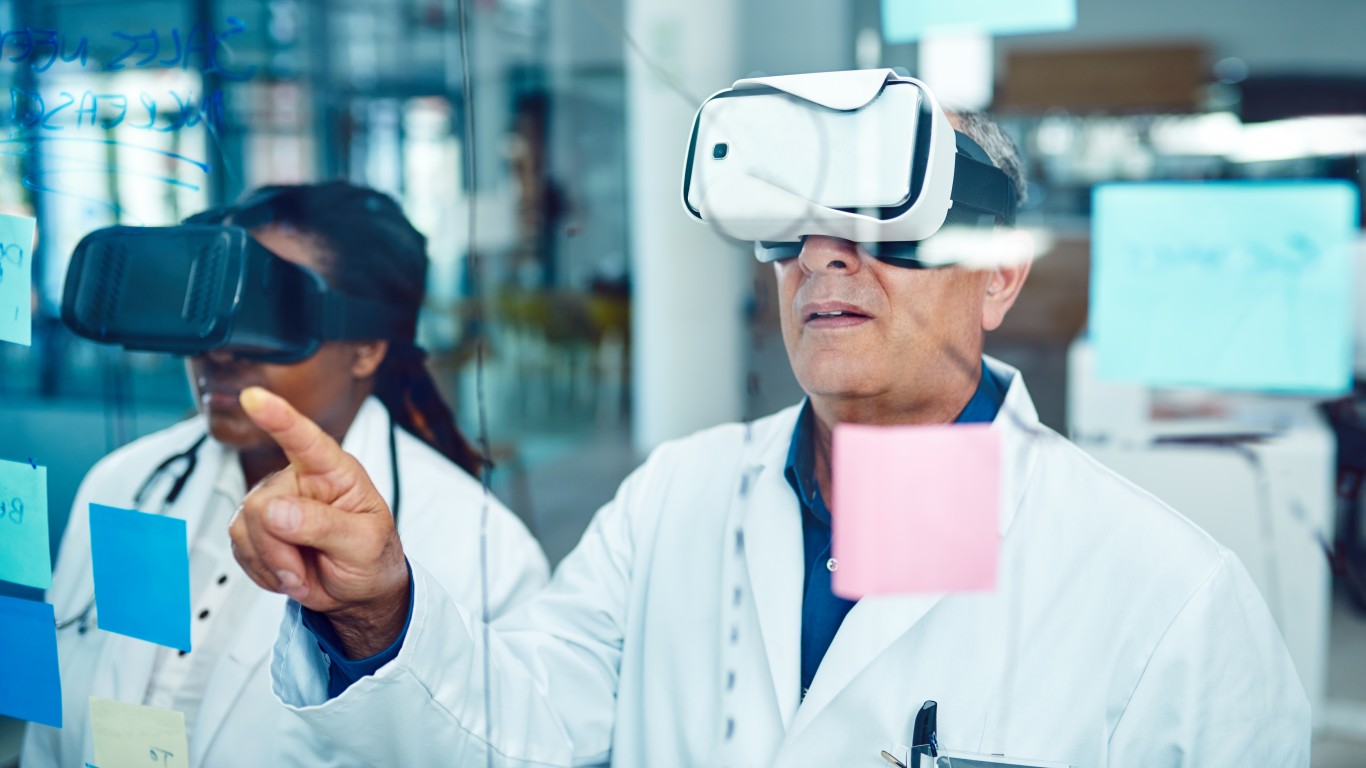
VR in health care
Most people associate Virtual Reality with cool games they can play for fun, but the technology also has much more serious uses in the fields of health care and physical therapy.
Doctors use VR for surgery simulations, phobia treatment, robotic surgery, and skills training. VR is also being explored as a possible way to treat limb pain relief. The global VR health care market is valued at about $933 million and is expected to boom to about $3 billion by 2023.

Telemedicine
Telemedicine allows doctors to diagnose and treat patients remotely using telecommunications technology. Telemedicine is seen as a cheaper alternative to traditional face-to-face examinations. While it’s not widespread, it’s growing in popularity. Telemedicine visits, which may be covered by Medicaid, soared from 0.02 per 1,000 patients in 2005 to 6.6 per 1,000 in 2017.
In 20 Years, I Haven’t Seen A Cash Back Card This Good
After two decades of reviewing financial products I haven’t seen anything like this. Credit card companies are at war, handing out free rewards and benefits to win the best customers.
A good cash back card can be worth thousands of dollars a year in free money, not to mention other perks like travel, insurance, and access to fancy lounges.
Our top pick today pays up to 5% cash back, a $200 bonus on top, and $0 annual fee. Click here to apply before they stop offering rewards this generous.
Flywheel Publishing has partnered with CardRatings for our coverage of credit card products. Flywheel Publishing and CardRatings may receive a commission from card issuers.
Thank you for reading! Have some feedback for us?
Contact the 24/7 Wall St. editorial team.
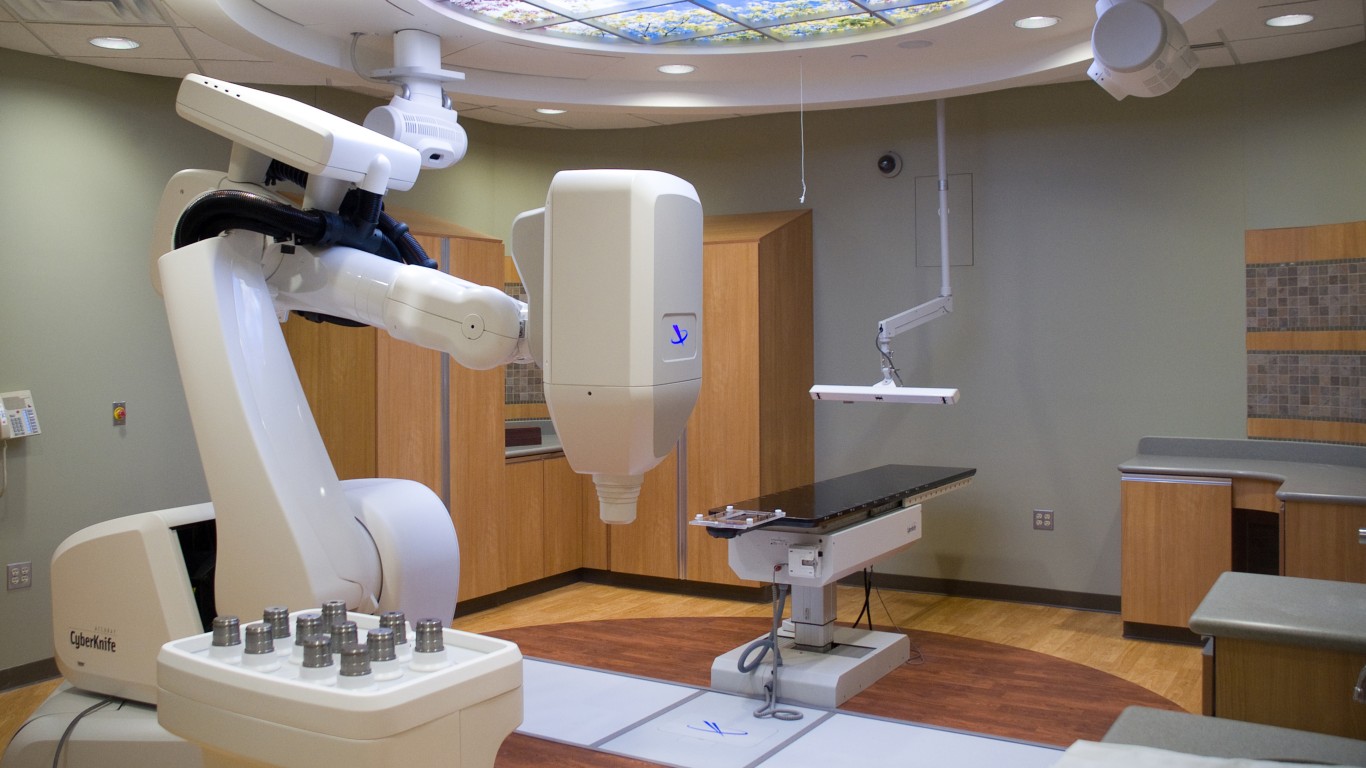
 24/7 Wall St.
24/7 Wall St.
